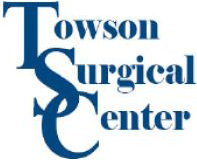Sinusitis
Overview
Sinusitis occurs when the sinuses are infected or inflamed. The sinuses are hollow air spaces within the bones surrounding the nose. The sinuses produce mucus, which drains into the nose. But if the nose is swollen, the sinuses can block and cause pain and infection.
You can have acute sinusitis, which lasts for less than eight weeks, or the condition can become chronic, with symptoms lasting much longer. Acute sinusitis often starts as a cold, which then turns into a bacterial infection, but it can also be caused by a viral or fungal infection. Pollutant, irritants, allergies and certain nasal problems or diseases can also be a factor.
Warning Signs & Symptoms
People with chronic sinusitis and acute sinusitis experience similar symptoms, but a chronic condition lasts longer, with milder symptoms.
Symptoms include nasal congestion and discharge, a cough that gets worse at night, fatigue, a general sick feeling, bad breath, loss of smell, headache, toothache, fever, sore throat and post-nasal drip.
Prevention
There are many risk factors that can contribute to sinusitis, so you should modify your behavior whenever possible to help prevent it or control your symptoms. Frequent swimming, air pollution and smoke, dental work, a deviated septum, frequent swimming and diving, and gastroesophageal reflux disease can all cause sinusitis. You should also limit the use of nasal decongestants. Unpreventable conditions like pregnancy, asthma and allergies, can also cause sinusitis.
Rehabilitation
Some patients may need to undergo sinus surgery to treat sinusitis. Among the procedures offered to treat sinus problems are endoscopic sinus surgery, revision sinus surgery and balloon sinuplasty. Click here to learn more about each procedure.
Recovery from sinus surgery varies among patients depending on the severity of the sinusitis and the procedure performed, but generally you can expect a full recovery in about two weeks. You should follow the instructions of your doctor.
